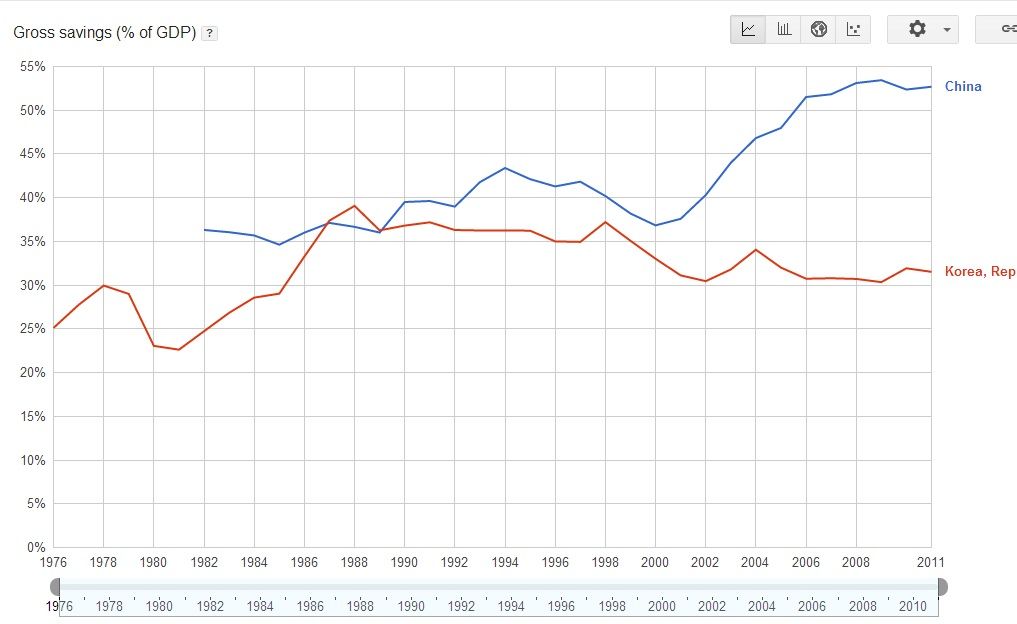
A major predictor of regime transition is an abrupt fall in income.
Slowing wage growth seems to have been a factor behind this in nearby countries like Korea and Russia. Rising investment rates clamped down consumption.
China, however, has been clever or lucky enough to make things work the other way around. The Chinese investment rate is so high that they can grow wages 5% a year for some time just by cutting savings alone.
Thus while slowing growth might seem to be a factor ready to cause social unrest and democratic transition, if the leadership has their stuff together they can turn even an abrupt crash into a smooth transition to a lower growth path. The Chinese Communist Party has a long life ahead of itself yet.
The other factor which might work against regime change in China is the structure of inequality, where a significant part of the population, the coastal provinces, has an interest in preserving it.
Same goes for North Korea. The DPRK is a closed, feudal society. It could hold out for decades, maybe even centuries. In the past some other country would come along and colonize it and get rid of all that. Europe left that business.
Edited by Lucille ()
